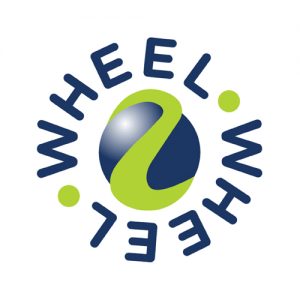After Alan Ng and I hit the ground in Bangkok and met up with the gentlemanly Baan Gerda founder Karl ………… , we embarked upon the three hour journey towards Lopburi province in which Baan Gerda in located. I took the opportunity to ask Karl about the history of Baan Gerda and aids in Thailand. Although Thailand is currently a model country in their system of dealing with the aids epidemic, to hear Karl explain the human stories and suffering behind the statistics really started to hit home. As he explained that the founding principle of Baan Gerda was to create an environment in which sufferers of the virus could pass away as comfortably as possible, I could feel tears beginning to well up in my eyes at the prospect of what I was about to experience, yet when we arrived what I found was an entirely different story…
Upon arriving, Alan, Karl and myself were immediately greeted by a host of delightfully warm children, who after raising their hands to their mouths in greeting would often enough giggle their way closer for a hug. Considering these children must regularly see many strangers passing through Baan Gerda, it doesn’t seem to stop them from being incredibly open in their approach. As Karl showed us around the premises, we were accompanied by children who seemed quite content to hold onto our hands and chatter away in Thai.
The set up of the community means that each child lives within a family unit, in which a mother and father is responsible for taking care of a household. The strength of the bonds that such living conditions create is clearly apparent in the manner in which the children show care and respect for one another. The big ones look after the little ones and as they grow up together they are working with the ambition of creating a sustainable model that enables social re-integration.
Of course, housing teenagers is never going to be an easy task and the community is focusing its efforts on educating or training the youngsters to give them hope not just for their own futures, but also for the future of Baan Gerda. Success stories include the implementation of a farm that will not only feed the community, but will also sell produce for a profit and for one young women, the opportunity to start attending university.
As we wandered around the premises, feeling slightly giddy on the excitement of the children, there was only one moment in which my heart briefly skipped a beat. Karl took us into the doctor’s unit and showed us a display on the wall, upon which was pinned all the varieties of medicine that the children take on a daily basis. Such a simple but subtle reminder was enough to pull both Alan and myself back to the harsh reality of the children’s illness. Life at Baan Gerda is beautiful, but not a day goes by when the battle to sustain the health of these children lapses. What they need is funding to maintain the daily running of the community and to accommodate the needs of children who are rapidly turning into teenagers.
Alan and I were lucky enough to arrive at Baan Gerda on the evening that the children were practicing their Thai dancing and performing their traditional music. The energy of the dancers was quite outstanding, as was their agility in some of the more difficult moves. The post dinner musical performance included a xylophone and as the beautiful sounds rose to fill the communal dining room I could feel what a special place Baan Gerda truly is.
Without having access to Baan Gerda, it is certain that many of these children would have rapidly died. Yet, due to the astonishingly hard work of the founders and the entire community, Baan Gerda has turned into a place where children infected or affected by HIV come to live, and live they very much do. There is nothing quite like sitting outside on the grass as the Thai sun descends into a moody dusk with thirty Thai children screaming in delight as they play round after round of their current favourite game; duck, duck, goose. These are the kind of smiles that linger long in the imagination after the children have finally settled for bed.
Subscribe to our Youtube Channel: http://www.youtube.com/Wheel2Wheelchannel
Join us on Facebook: http://www.facebook.com/wheel2wheel
Follow us on Twitter: http://www.twitter.com/wheel2wheelteam
